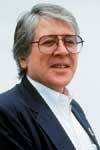 For decades, if you wrote a letter to Starweek magazine, asking for an address to write to a star, or to get information on your favorite TV show, the guy who answered your letter was Eirik Knutzen.
For decades, if you wrote a letter to Starweek magazine, asking for an address to write to a star, or to get information on your favorite TV show, the guy who answered your letter was Eirik Knutzen.
So it was with sadness to read in the TCA newsletter sent to critics today that Knutzen passed away last Thursday:
Walt Belcher of the Tampa Tribune reports that TCA member Eirik Knutzen, freelancer, formerly with Copley News Service, passed away (Nov. 20) at a hospital in Palm Springs from complications involving heart problems.
Some great writers have passed away recently and have been gracefully saluted. Chicago legend Studs Terkel, of course. The amazing John Leonard, so smart about how to review television on television. Look up “erudite” in the dictionary, there’s Leonard’s picture.
Knutzen never had that kind of a profile. Nobody ever named a sandwich after him. While he probably met and interviewed anybody who was anybody during TV’s boom years (as well as hundreds of B-players, sidekicks and soap stars), he was old school, a wordsmith, plain and simple. This pen for hire.
I knew Knutzen first as a reader. Besides the Starweek letters column, which he always made lively (how often do you read a letters column?) he wrote many, many television features, usually profiles of Hollywood celebrities. He had a crisp, straight ahead style, gave you a snapshot of a personality, told you one or two things you never read elsewhere, and stayed completely out of the way.
He was a master at those meat and potato paragraphs, the ones where you condense somebody’s entire life into four or five tight sentences. Read how quickly he takes you through Morgan Fairchild’s path from childhood to stardom in this 2006 article:
Dallas born and bred, Fairchild – born Patsy Ann McClenny – was introduced to an acting class by her schoolteacher mother at age 10 after she proved too timid to deliver a book report in class. By 12, she had joined a children’s theater group; two years later, she was a finalist in the Miss Teenage Dallas pageant. At 16, she was a stand-in for Faye Dunaway in “Bonnie and Clyde.”
Encouraged to change her given name by her actress sister, Cathryn Hartt, before splashing down in New York in 1971, Fairchild also gave modeling a shot before signing up as cold-blooded killer Jennifer Pace Phillips on the daytime soap “Search for Tomorrow.” She went on to prime-time stints on “Flamingo Road,” “Paper Dolls” and “Falcon Crest.”
That was Knutzen; never a word wasted.
When I attended my very first press tour, way back in the mid-’80s, he was one of the first people I recognized (The Star used to run his logo shot back then). I introduced myself and while he already seemed a bit world weary back then, he took the time to help a rookie from Canada, pointing out the power players in the room and making me feel right at home. Soft spoken, always wearing a safari jacket, he looked like Bawana Clyde Batty’s low key, Norwegian cousin. Other on tour knew him better, and I hope a few share their memories below.
It was no secret that Knutzen had a bad ticker. The last few years it was always a question of whether he would appear at press tour. He would inevitably be there, although he was so quiet and in the background it might be a week before you knew it.
Jim Bawden, who worked with Knudzen for decades at the Toronto Star, confirms a story I had heard–that Eirik once had a heart attack while driving on the Pasadena Freeway. The ambulance declined to pick Knutzen up because he had a Norwegian passport and no insurance. Knutzen, a tough bugger, drove himself to the hospital where he underwent triple bypass surgery.
The other astounding thing about Knutzen is that he worked 35 years at The Star as a freelancer! That he lived and supported himself by his own wits in Los Angeles all those years is remarkable and inspiring to the many of us who find ourselves following in his freelance footsteps.
Condolences to his family and his many friends on press tour–and to all those readers who wrote in on a whim and got an answer back. Knutzen connected us to television, and, if there is a disconnect these days, it’s because there aren’t enough Knutzens.


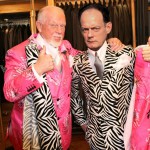

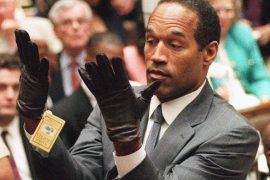
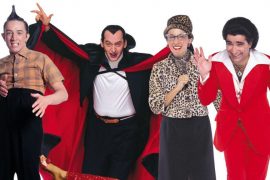
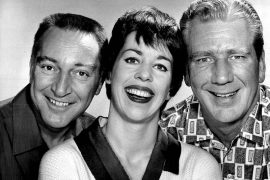
1 Comment
How did he know all that stuff? Simple; Knutzen was a great reporter. I read his column weekly, even if I didn’t care about the person he was finding for a loyal fan. In the days long before easy-search tools like Google or Facebook, he could track down anybody.
Linda Barnard